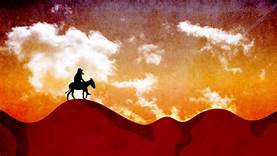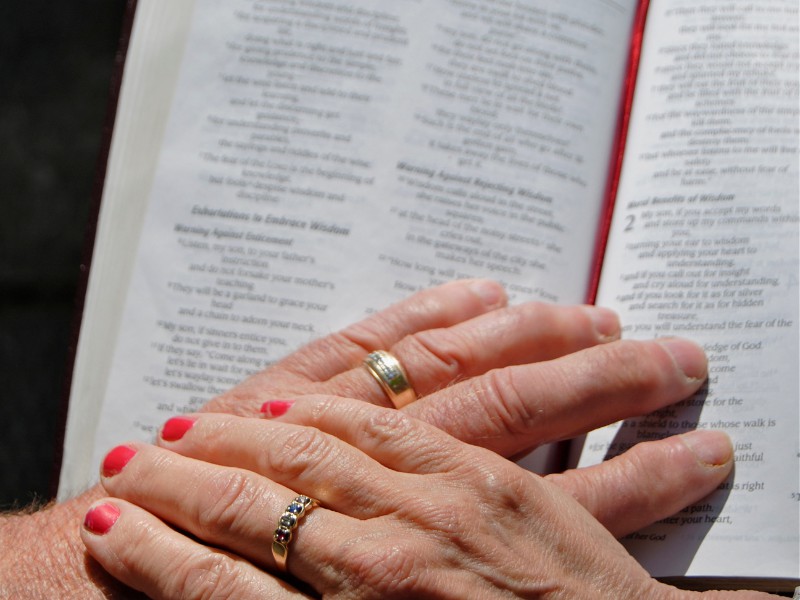Watch
Events
Articles
Market
More
THIS WEEK
Chukat-Balak חֻקַּת־בָּלָק
Statute/Balak
Torah : Numbers 19:1-25:9
Prophets : Micah 5:6-6:8
Gospel : John 19:38-42; Matthew 21:1-11
Portion Outline
Torah
Numbers 19:1 Ceremony of the Red Heifer
Numbers 20:1 The Waters of Meribah
Numbers 20:14 Passage through Edom Refused
Numbers 20:22 The Death of Aaron
Numbers 21:1 The Bronze Serpent
Numbers 21:10 The Journey to Moab
Numbers 21:21 King Sihon Defeated
Numbers 21:33 King Og Defeated
Numbers 22:1 Balak Summons Balaam to Curse Israel
Numbers 22:22 Balaam, the Donkey, and the Angel
Numbers 22:41 Balaam's First Oracle
Numbers 23:13 Balaam's Second Oracle
Numbers 24:1 Balaam's Third Oracle
Numbers 24:15 Balaam's Fourth Oracle
Numbers 25:1 Worship of Baal of Peor
Prophets
Mic 5:7 The Future Role of the Remnant
Mic 6:1 God Challenges Israel




https://rumble.com/c/YourArmsO....fLoveToIsraelCongreg
Tune in and keep us on! Don't forget to FOLLOW us so you enjoy all the benefits our station has!



Resilience Tip #003 - EMP Protection
Hello Everyone,
Its been a while, I have been working on some video content going over this topic, however considering the continuing escalations of the world, and the fact that the videos are not yet ready. I want to post some quick information regarding my solutions for EMP protection for sensitive electronic items. The videos I am working on deomstrate this concept in practice as well as, show some sizing variations to help determine what size might be needed for your items and discuss what you may want to consider storing for post EMP situations. I am also thinking about doing some tests regarding water penetration. In the mean time here is a quick write up, regarding what I currently employ and why.
Knowing that EMP protection can get rather expensive, the most cost effective way I have found to potect sensitive electronics is using Faraday Bags. They are inexpensive and can be nested to multiply protection, while maintaining a somewhat small maleable form factor allowing for ease in transnportation. When sealed properly they also double as a weather barrier and in combination with Gripstics bag seals items are easy to access while creating a great repeatable seal. Its a little more costly than tape or bag/binder clips but it works much better for keeping the bags sealed as the tension is maintained along the entire length of the bag. Also the ease of installation/removal of the Gripstics really minimizes the hassle of accessing frequently used items, while still allowing for rapid deployment if necessary.
These are the bags I use in combination with the Gripstics for a majority of my storage needs.
I do use some NEST-Z (They come with a Ziplock Seal) for items that are accessed daily, however the issue I have run into with the NEST-Z bags is the ziplock seal tends to come unglued over time. For this reason I recommend the regular bags and the Gripstics for maximum realiability. You can find the NEST-Z bags in the link below.
If you want to learn more about EMP protection I would highly suggest checking out disasterpreparer's website as well as his youtube channel where he tests and discusses various scenarios and solutions. Also for some real EMP tests on items check out Sol-Arks videos at the bottom.



Join us live all day every day! https://rumble.com/YourArmsOfL....oveToIsraelCongregat Make sure to FOLLOW us!



Too often, couples have a self-centered perspective on marriage, focused only on what they should be receiving from their spouse. But marriage cannot flourish in a self-centered environment. Having a blessed marriage that glorifies God means being attentive to your spouse's needs before your own. And as a general principle, when you focus on loving and serving your spouse, you'll often find that they will be willing to reciprocate. "Whoever brings blessing will be enriched, and one who waters will himself be watered" (Proverbs 11:25).



BIBLE STUDY LESSON 20
SERIES S --- THE SON OF YHVH
THE GREATEST COMMAND
THE SADDUCEES AND THE RESURRECTION
From Matthew 22:23-46; Mark 12:18-37; Luke 20:27-44
While Yeshua was in the temple, some Sadducees approached Him with a question. They hoped to trick Him, so that He might accidentally say something to support their view that there was no resurrection after death. [Teacher, the Law of Moses says that when a man dies without children, his brother should marry the widow so that the children would inherit the dead man’s property. There were once seven brothers. The first married a woman, then died without children. The second married his brother’s widow, but he died without children. The widow married each of the remaining brothers, as each died and left her to the next. At last, she died. In the resurrection, whose wife would she be, for she was married to each of them?] [Your question is wrong,] said Yeshua. [That is because you don’t know the Scriptures or the Power of YHVH. People marry in this world, but not when they are resurrected into the next life. Your real problem is that you don’t believe in the resurrection! People who rise from the dead rise to die no more, and they become like the angels of YHVH. Don’t you remember what Moses said at the burning bush? He called Adonai the YHVH of Abraham, Isaac and Jacob, so they were still living when Moses spoke, resurrected from the dead. The people who heard Yeshua’ answer was amazed at it. Even the scribes standing nearby said, [Teacher, You have given a good answer.] After that, the Sadducees asked Him no more questions. But the Pharisees had another question for Yeshua. One of them, a scribe, asked, [Which is the most important Commandment in the Law of Moses?] Yeshua answered, [You shall love Adonai your YHVH with all your heart, soul, mind and strength. The second most important one is that you shall love your neighbour as yourself. No other Commandments are greater than these.] [You are right, Teacher,] the scribe replied. [You have said correctly that Adonai is one, and that there is no one greater, and to love Him with heart, understanding and strength, and to love one’s neighbour as himself is even more important than all burnt offerings and sacrifices.] [You are close to the Kingdom of YHVH,] Yeshua told this man. But while the Pharisees were gathered around Him, Yeshua asked them a question. [What do you say about the Moshiach? Whose son, is He?] [David’s son.] they answered. [Then why did David, guided by Ruach HaKodesh, say, ‘Adonai said to my Adonai, sit at My right hand, until I put Your enemies under Your feet?’ If David called the Moshiach Adonai, how then could He be David’s son?] No one could answer that question. And after that time, no one dared to question Yeshua publicly again.
COMMENTARY
JERUSALEM’S WATER SYSTEM -- TEMPLE CISTERNS
The temple ceremonies required many gallons of water every day. Each morning the large brass laver that stood in the Priest’s Court was emptied and filled with fresh Water. The underground bathhouse beneath the temple platform also demanded a continuous water supply. Because the nearest spring was far below in the Kidron Valley, another source of water was needed to supply the temple. A complicated system of underground tanks to store water was dug out of the rock beneath the temple platform. These cisterns or reservoirs were fed by the winter rains as well as the water piped in from Solomon’s Pools. When all the cisterns were full, they could hold over twelve million gallons, enough to provide the temple with water throughout the year. Some of the temple cisterns were larger than others. The largest was called the Great Sea because it formed a large underground lake. It was so big that it could hold more than two million gallons of water. It was connected with the other cisterns by a network of underground tunnels that crisscrossed under the temple courts. Together they formed a complicated water-supply system in the dark regions below the ground, hidden from the eyes of temple visitors.



All of today's posts are about marriage, trying to examine submission by simply looking at the Bible, so that we get YHVH's perspective on it, rather than a human viewpoint. https://archive.aweber.com/awlist6425868/DKta.




How are we able to maintain Biblical accuracy in the world today? In the words of Paul — Study to show thyself approved — 2 Timothy 2:15. While this isn’t the exact context of Paul’s advice, it is still good advice. We don’t need to intemperate the Bible, we simply need to dig through the language, culture and history to find the original meaning of the words and then do what is written.


